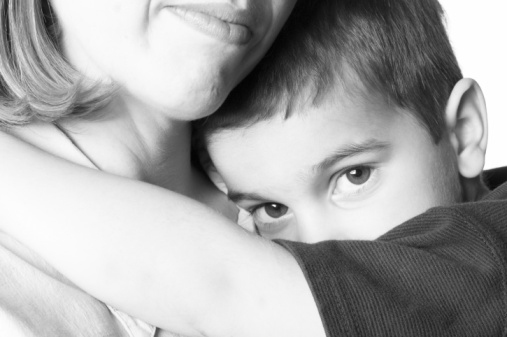I had a patient a long time ago who was extraordinarily emotionally unbalanced. She came from the wackiest family you could ever imagine and she had been on many different drugs. I remember asking her what she took. "Whatever's available," she said. I was surprised she wasn't dead. However, she was a remarkable person, and as time went on, she got better and better. She ended up becoming a professional in the medical industry and was very good at her job.
One day in a session, she became terribly upset and started storming around my office. She pointed to my diplomas and other things hanging on the walls, shouting about how I'd accomplished so much more than her even though we were the same age. I simply said, "We can't compare ourselves. I had to walk across a field - you had to dig yourself out of a hole. If I had to crawl out of the hole you did, I don't know where I'd be."
Some people have to overcome a lot inside of them to get from point A to point B. Others slide from point A to point B with very little road rash. Some of you are scared to death of going to a party whereas others walk in with a bottle of wine and say, "Where's the food?"
Part of anxiety is genetic and some of it is learned. Many parents are so concerned about their kids never feeling hurt, embarrassed or uncomfortable that when they have to face something on their own in the world, they can't cope. Kids have to learn that life is sometimes disappointing and that just when three good things happen, one bad thing can come and hit you in the mouth.
So when your child is afraid, how can you help them face their fears?
Believe it or not, the most powerful tool for helping a child overcome their anxiety is simple: talking! When something is in your head, it's like a malformed monster. It doesn't have dimensions or clarity - it's just fear with scariness attached to it. But when you describe the fear out loud, you turn the dimensionless feeling into something tangible. It's now a thing you can put in front of you and look at, and it loses power. When it's inside, it's all-powerful, but on the outside, we have power against it.
The more articulate a child is about their fears, the better they will handle being shy and fearful. That's why talking is so important. You can make it a game. Ask your child, "If what you are afraid of were an animal, what kind of animal would it be? If it were a thing, what kind of thing would it be? What color would it be?" They will not only have fun trying to describe their fear with colors, textures, sizes, and sounds, but they will feel a sense of power and control over what it is and what it means to them. They can now see it, hit it, push it, pinch it, and put it in a box.
Let's say, for example, that your child is afraid of a monster in their closet or under their bed. Ask them what the monster looks like, how big it is, and how much it weighs. Have them define it in three dimensions. Then say, "How do you think we could take care of this? OK, here's what we're going to do. I have this special blanket, and if I capture this creature with the blanket and put it in the trash, it can't get out." Do this and your kid will go right to sleep.
At any age, it's incredibly impressive when someone is afraid to do something but does it anyway. So parents, if you take away anything from this blog, it should be this: When your child is afraid of doing something but does it anyway, support them out their ears.
*A Not-So-Fun-Factoid: What is the biggest fear for kids? Their parents getting divorced! On average, kids will tell you that they would rather a parent be dead than divorced. If their parent is dead, they don't feel left behind on purpose or see their parents fighting or establishing new families with new kids. With a divorce, the gates of hell are opened permanently and the torture never ends. The number one thing kids call about on my program is, "My parents are divorced and I don't see my mom or dad."
